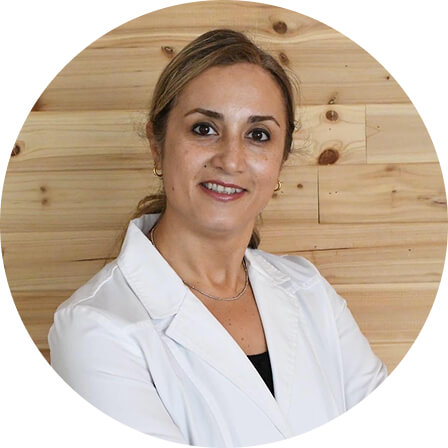Not always—but many people do benefit from visiting a thyroid specialist at key moments. Most straightforward, stable cases can be managed by a primary care provider (PCP). You should strongly consider an endocrinologist if your diagnosis is unclear, your symptoms don’t improve on treatment, you’re pregnant or planning for a pregnancy, you have other autoimmune or heart conditions, or you have thyroid nodules/goiter alongside abnormal lab reports.
What counts as “straightforward” hypothyroidism?
Hypothyroidism means your thyroid isn’t making enough hormone, and the mainstay treatment is daily levothyroxine (T4). After starting or changing your dose, labs are usually rechecked in about 6–10 weeks; once stable, people are typically monitored once or twice a year. Many patients do well with this plan under the care of their PCP.
When you should see an endocrinologist for Hypothyroidism
Consider a thyroid specialist if any of the following apply:
- If you are pregnant or planning for pregnancy. Thyroid hormone needs to rise early in pregnancy; many patients require a 30–50% dose increase and close TSH checks (about every 4 weeks in early pregnancy). Getting this right reduces risks for you and your baby.
- Your symptoms persist despite “normal” labs on an adequate levothyroxine dose—this warrants a careful re‑evaluation and sometimes referral.
- Your TSH remains hard to control, or your dose is unusually high/low (malabsorption, medication interactions, or adherence issues may be at play).
- You have thyroid nodules/goiter or structural thyroid concerns in addition to abnormal function tests. An endocrinologist can coordinate an ultrasound and further work‑up.
- You have central/atypical hypothyroidism, pituitary disease, or other unusual causes (e.g., after thyroid surgery, radiation, or rare congenital causes).
- You have multiple autoimmune conditions (e.g., type 1 diabetes, Addison’s), heart disease, bowel disease, or you’re on medicines that complicate dosing.
- Subclinical hypothyroidism decisions are tricky, especially if your TSH >10 mIU/L or you’re TPO‑antibody positive; treatment thresholds and follow‑up benefit from specialty input.
PCP vs. Endocrinologist: who does what?
- Primary care can diagnose with TSH and free T4, start levothyroxine, and monitor stable patients long‑term. Routine ultrasound isn’t needed unless there’s a palpable abnormality.
- Endocrinology focuses on complex hormone disorders. At a visit, expect a targeted history/exam, thyroid palpation, and lab work (TSH, free T4 ± antibodies). Imaging (e.g., thyroid ultrasound) is ordered as needed, and you’ll leave with a personalized plan.
What to expect at your first endocrinology visit
- Before the appointment: Bring prior labs, imaging, and a complete medication/supplement list (calcium, iron, PPIs, biotin, etc., can affect dosing or tests).
- During the visit: You’ll review symptoms and history; your specialist may examine your neck/thyroid and order or interpret labs such as TSH and free T4 (and, when indicated, TPO antibodies). Ultrasound is used for nodules or goiter.
- After the visit: Follow your plan precisely. Dose timing and consistency make a big difference. After this, recheck labs on schedule to fine‑tune treatment.
How often will your labs be checked?
- Starting or changing dose: Recheck TSH in 6–10 weeks.
- Stable dose: Typically every 6–12 months (sooner if medications change, you gain/lose significant weight, or symptoms shift).
- Pregnancy: Increase dose promptly and monitor more frequently, especially in the first half of pregnancy.
What about cost, referrals, and insurance?
Coverage varies by plan and state. Some HMO/Medicaid plans require a PCP referral for specialty care; cash‑pay and many telehealth options don’t require referrals. Out‑of‑pocket costs depend on location, insurance, and services performed. Check your plan and the clinic ahead of time to avoid surprises.
FAQs
Do I need an endocrinologist if my TSH is only slightly high?
Not always. Many people with “subclinical” hypothyroidism don’t need treatment unless TSH >10 mIU/L or TPO antibodies are positive. Your PCP can monitor and decide when specialty input is helpful.
Can I just add T3 if I still feel tired?
Current guidance does not recommend adding liothyronine (T3) routinely when TSH is normalized on levothyroxine; instead, clinicians reassess for other causes of symptoms and consider referral.
How should I take levothyroxine?
Consistency matters. Take it the same way daily, and separate it from interfering supplements/meds (e.g., calcium, iron). Expect several weeks before dose changes are reflected in labs.
The bottom line
- You may not need a specialist for stable, garden‑variety hypothyroidism.
- See an endocrinologist for pregnancy, persistent symptoms, complex dosing or comorbidities, nodules/goiter with abnormal labs, or atypical/central causes.
- Coordinated care between your PCP and an endocrinologist leads to the best outcomes.
If you’re looking for thyroid‑focused care
Hilltop Endocrinology evaluates and treats a full range of thyroid disorders and can coordinate directly with your primary care provider. To see what an endocrine visit looks like and how to prepare, check out their patient‑friendly guides.
Contact Us
- Phone:- (301) 567 – 9570
- Phone:- (240) 696 – 3001
- Address:- 6130 Oxon Hill Rd, Oxon Hill, MD 20745, United States
Additional Reads:




